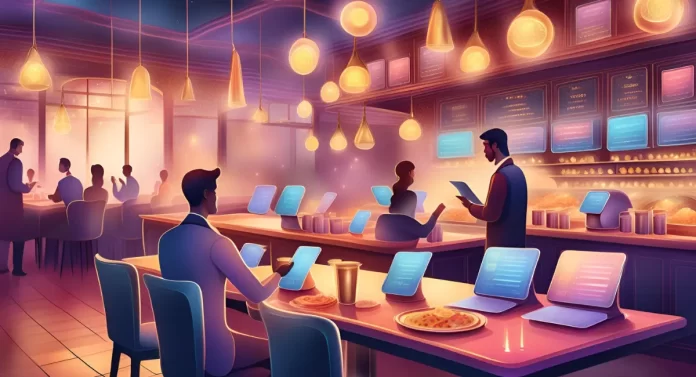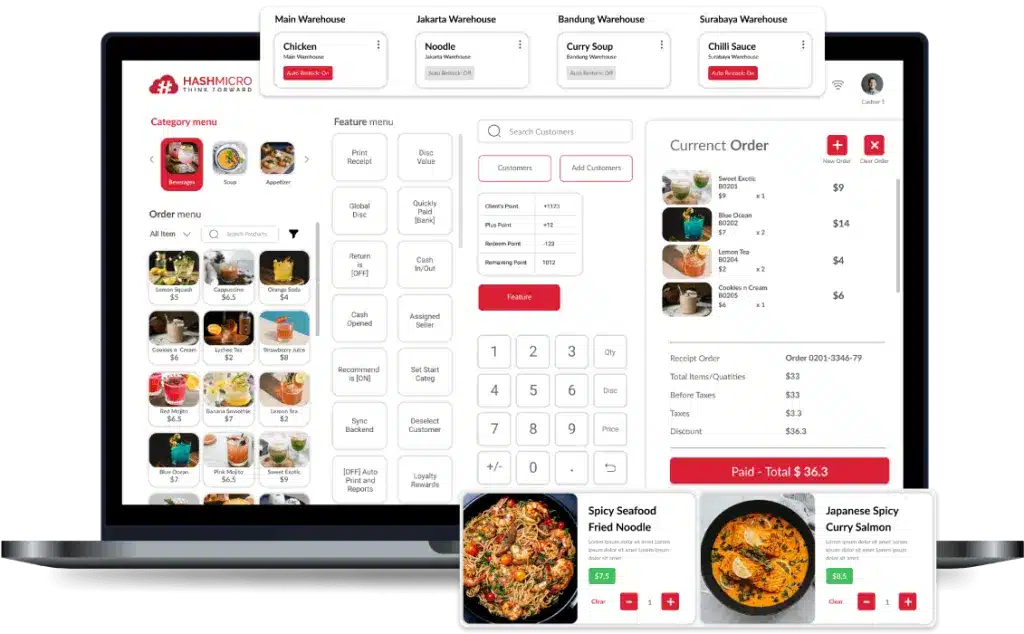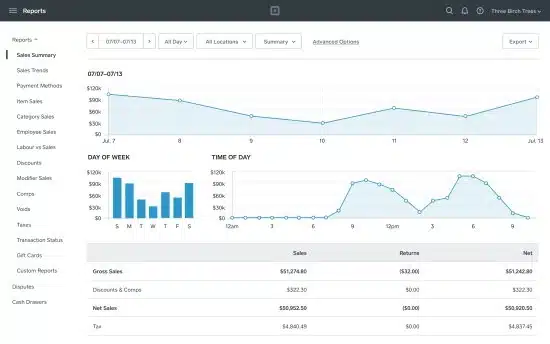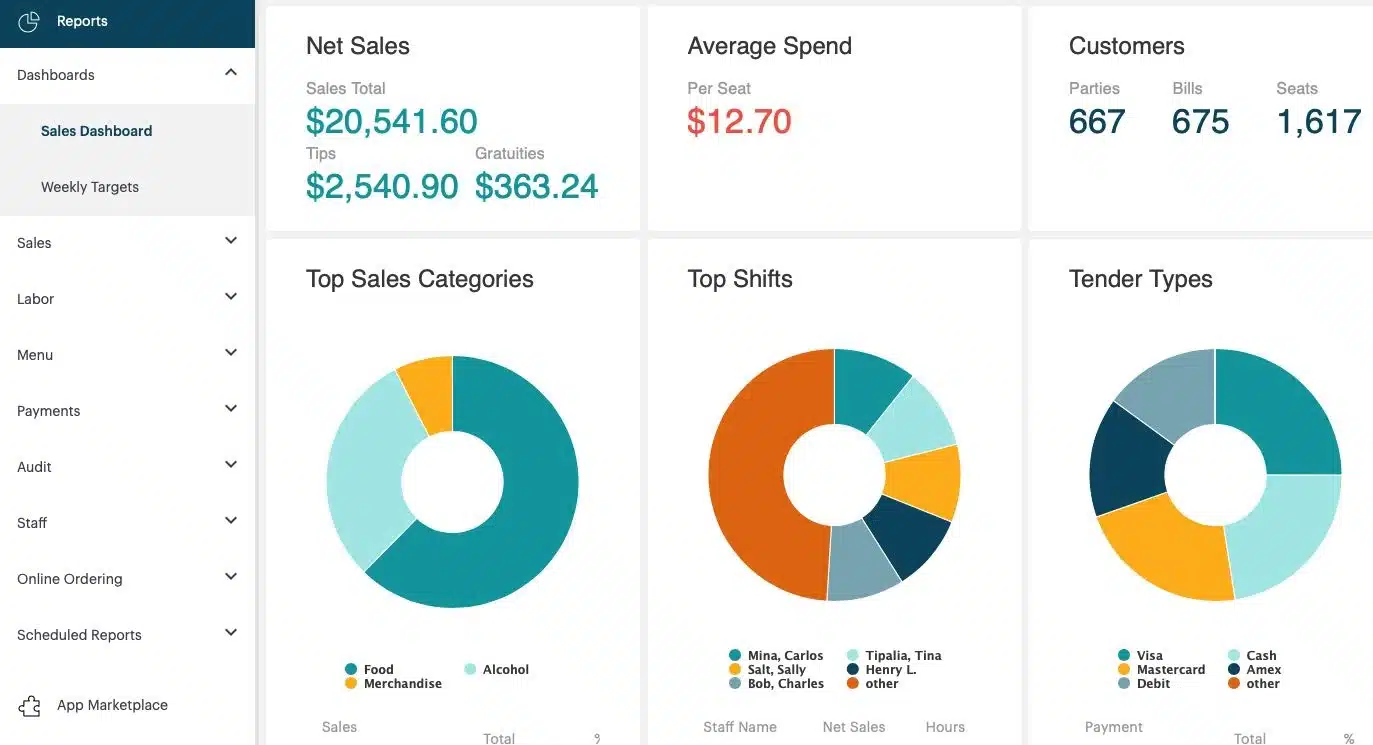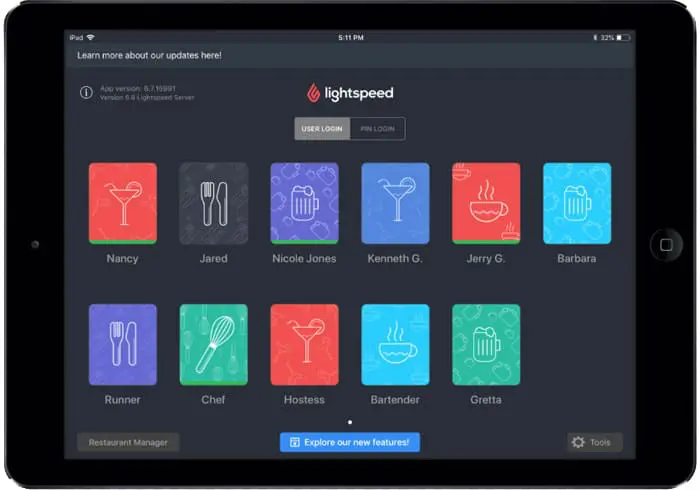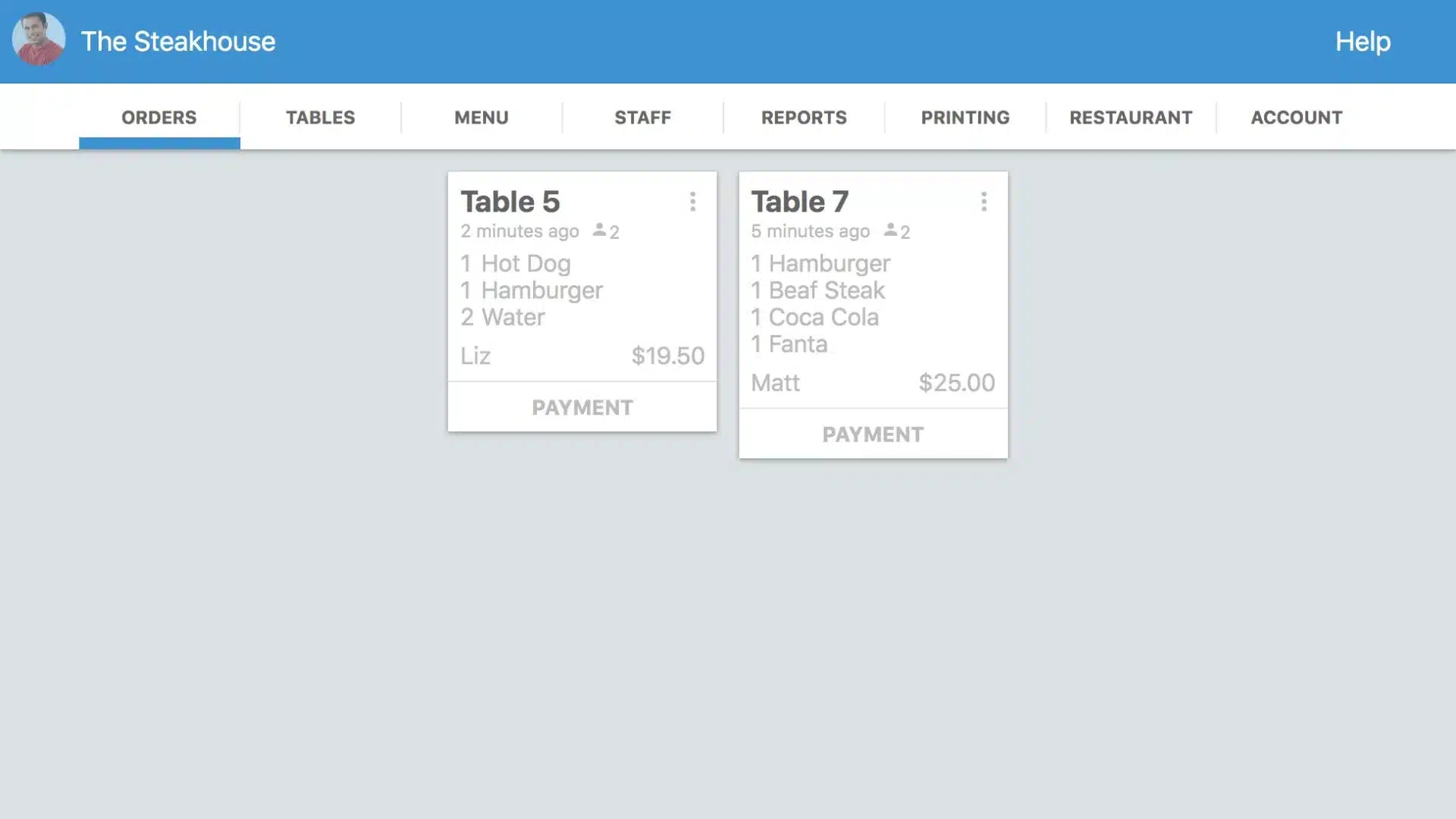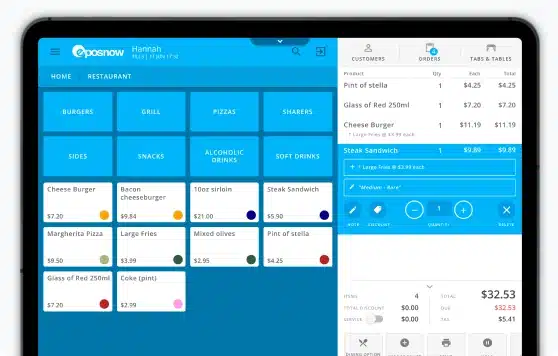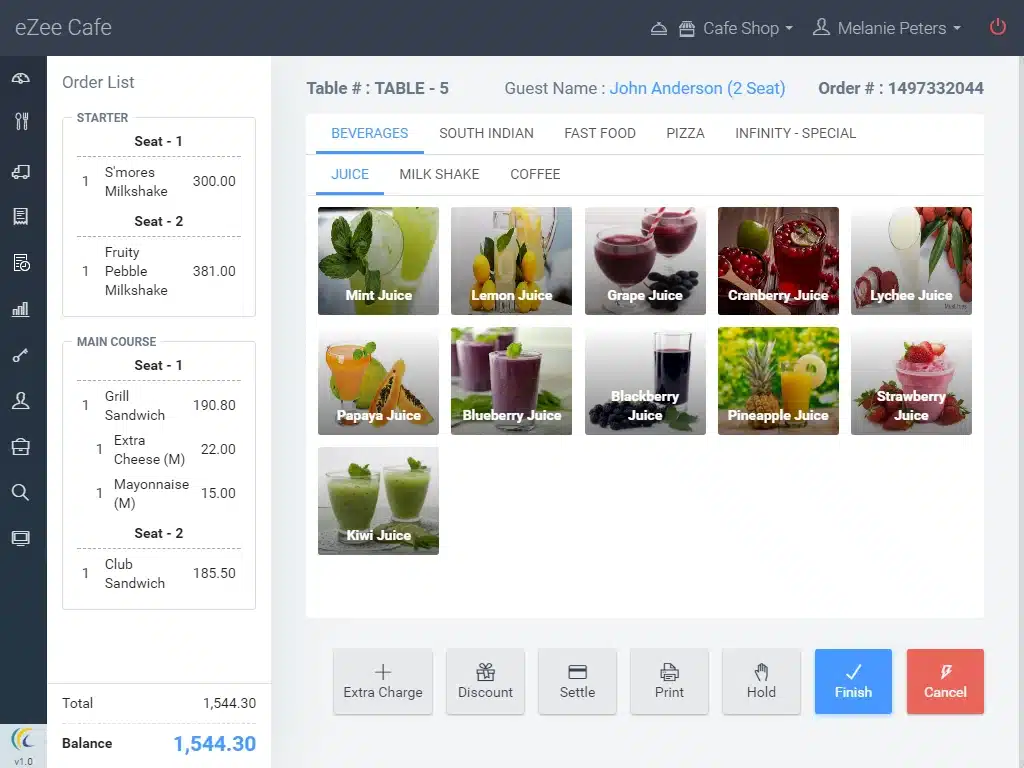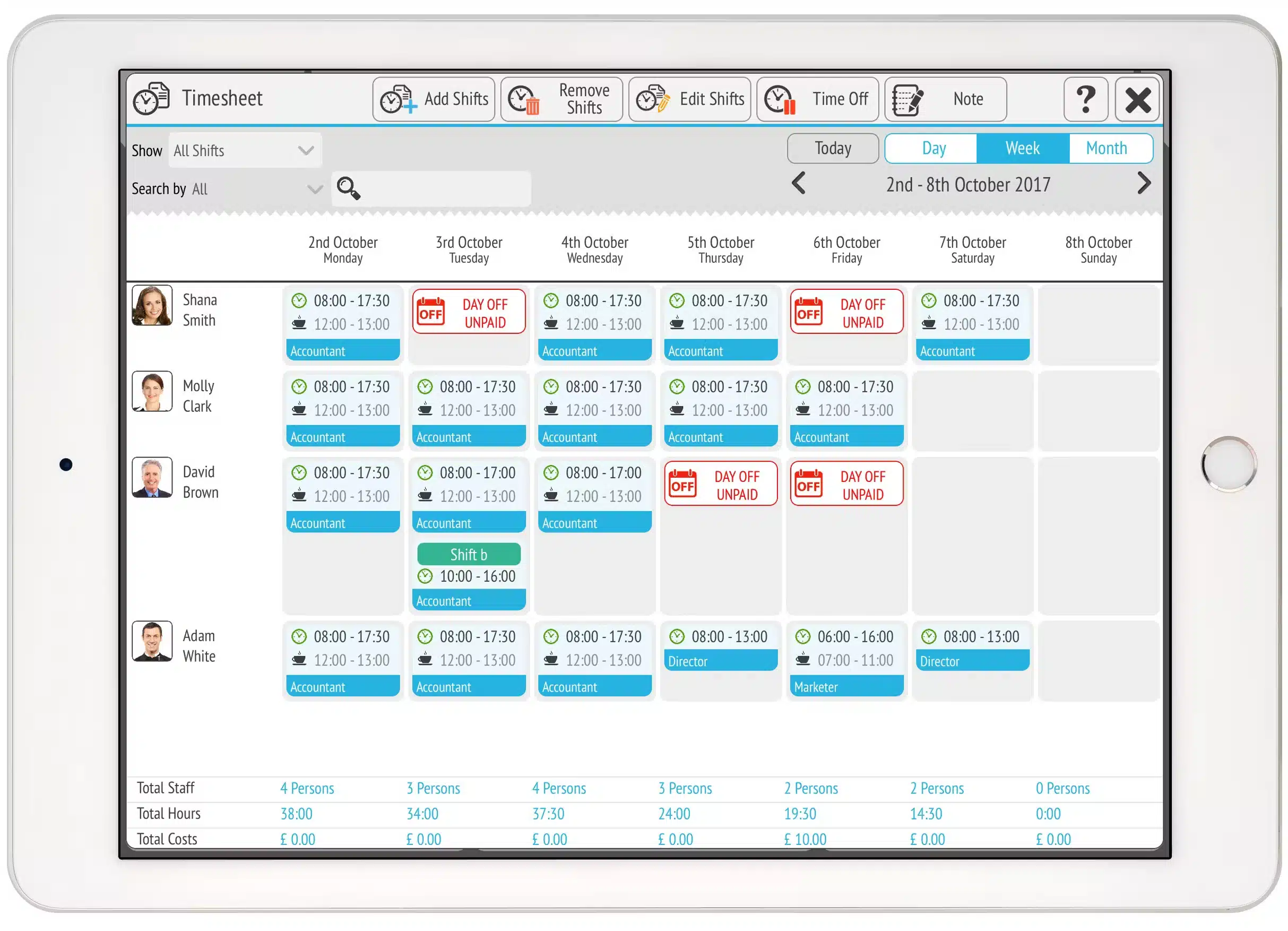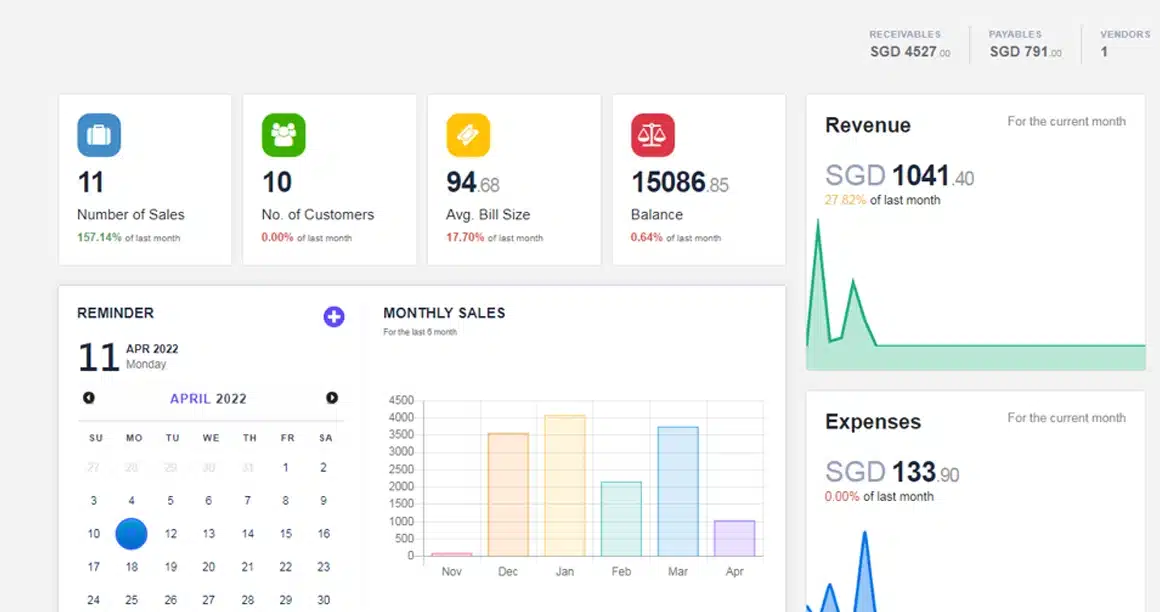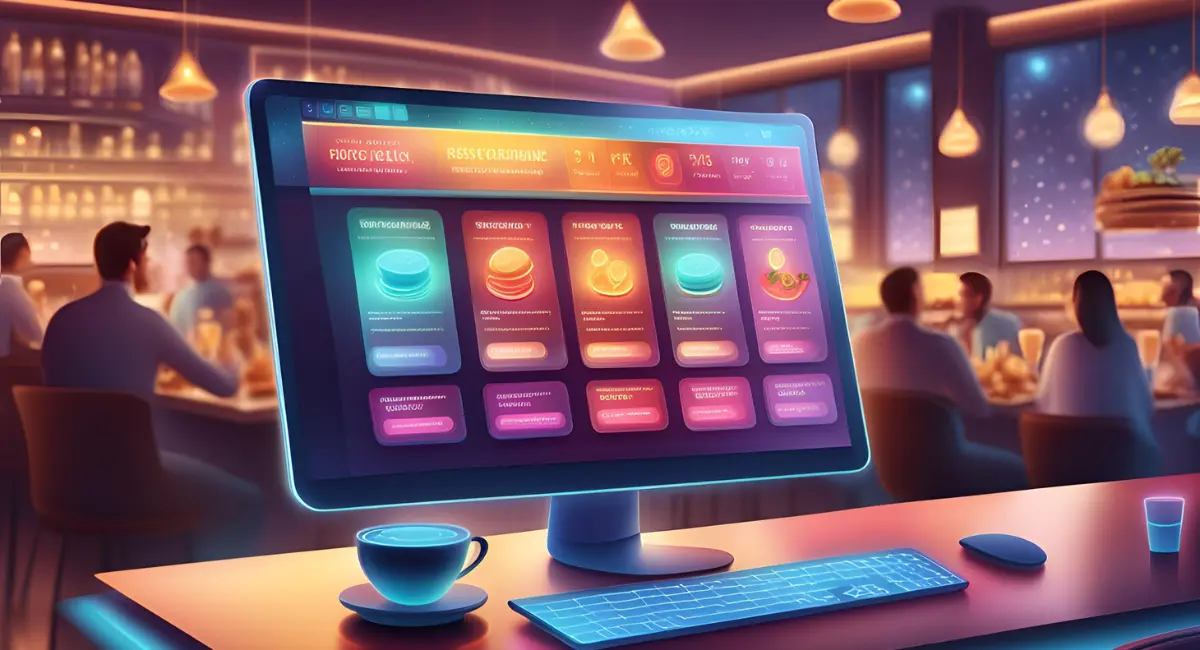Managing operations efficiently in Singapore’s fast-paced restaurant industry presents numerous issues, such as managing high customer volumes, keeping accurate financial records, and ensuring swift service. Outdated billing systems often worsen these challenges, resulting in slow service, billing errors, and customer dissatisfaction.
To address these problems, many restaurants have utilized Restaurant Billing Software. This software is designed to streamline billing processes, manage orders more efficiently, and enhance customer service by reducing wait times and minimizing errors.
However, the market is flooded with numerous restaurant billing software options, making it difficult for business owners to choose the one that best suits their needs. Choosing the wrong software can lead to further complications, such as disrupted workflows, wasted resources, and even revenue loss.
This article will provide the top 25 restaurant billing software in Singapore for 2024, highlighting features, usability, and how they can solve restaurants’ unique challenges. This guide will assist you in selecting the system that meets your operational needs and ensures your restaurant operates efficiently.
Key Takeaways
|
Table of Content:
Table of Content
Why do Businesses Need Restaurant Billing Software?
Restaurant Billing Software is an Enterprise Resource Planning (ERP) system designed to automate and manage a restaurant’s sales and billing processes. It integrates various operational aspects into a single platform, from order tracking and inventory management to customer relationship management and financial reporting.
The benefits of implementing restaurant billing software can significantly impact a business’s efficiency and profitability, which include:
- Labor cost savings
- Increased speed of service
- Enhanced accuracy in order-taking and billing
- Streamlined inventory management
- Increased compliance
- Detailed financial reporting
By implementing restaurant billing software, restaurants in Singapore can optimize their day-to-day operations and lay a foundation for sustained growth and success in a competitive market.
Top 25 Restaurant Billing Software in Singapore
Choosing the ideal restaurant billing software is crucial for managing your restaurant’s operations. Below are the top 25 restaurant billing software in Singapore, highlighting their unique features and capabilities, thereby assisting you in making an informed decision.
1. HashMicro Restaurant Billing Software
HashMicro Restaurant Billing Software is a comprehensive point-of-sale (POS) system that is an integral part of HashMicro’s ERP solutions. The software facilitates seamless daily operations by integrating core restaurant activities such as order management, billing, and customer relationship management into a unified system.
HashMicro also offers a free product tour and consultation with professional teams that allow potential users to experience firsthand the software’s features and functionality before purchase.
As a principal company, HashMicro offers standardized systems that ensure full regulatory compliance. Adherence to standards and regulations is particularly crucial in the restaurant industry, where financial and health regulations are stringent. Thus, HashMicro safeguards restaurant owners from potential compliance issues.
HashMicro Restaurant Billing Software excels at seamlessly integrating with existing POS systems, making it a versatile choice for restaurants with hardware and software setups that want to enhance their capabilities. This not only improves operational efficiencies but also enhances customer satisfaction by ensuring that every interaction is professionally managed.
Let’s take a closer look at the comprehensive suite of features that HashMicro Restaurant Billing Software has to offer:
- Centralized Multi-Branch POS: HashMicro simplifies managing point-of-sale operations across multiple locations, enabling uniform pricing, promotions, and inventory management from a single platform to ensure consistent customer experiences across branches.
- Order Management: This feature streamlines the order entry, processing, and tracking processes. This system enhances the accuracy and speed of service by reducing human errors and improving order flow efficiency.
- Multi-Location Management: This feature provides a unified platform for overseeing operations across multiple restaurant sites. It enables easy access to consolidated data, helping management oversee sales, inventory, and staffing across all locations.
- Customizable Billing Options: HashMicro allows restaurants to tailor billing processes to meet specific business needs and customer preferences, enhancing the checkout experience. This feature supports the inclusion of discounts, coupons, and dynamic pricing strategies, which helps attract and retain customers.
- Loyalty Points Management: This feature enables restaurants to develop and manage customer loyalty programs directly through their POS system. This feature allows businesses to track customer purchases, reward repeat customers, and provide personalized offers.
- Central Kitchen Management: HashMicro’s software is integrated with Central Kitchen Software to oversee production and supply chain operations effectively. It allows centralized control over menu planning, ingredient purchasing, and inventory management.
- Real-time Reporting for All POS Sales: HashMicro offers comprehensive and detailed reports, including Multi-Level Analytical capabilities. This feature allows businesses to compare financial statements (FS) per project, branch, and other criteria.
Pros:
- Intuitive user interface and easy navigation
- Highly customizable to suit business needs
- Extensive integration with other systems, including manufacturing, accounting, supply chain, CRM, and HRM
- Unlimited users without additional user fees
- Lifetime after-sales service and maintenance
Cons:
- Implementation duration may vary depending on the business’s requirements
From front-end transaction processing to back-end analytics and reporting, HashMicro Restaurant Billing Software offers an end-to-end solution for the restaurant industry. These capabilities ensure that all facets of the restaurant’s operation are interconnected, leading to improved customer service, streamlined internal processes, and enhanced profitability.
If you are unsure and interested in learning more about how HashMicro Restaurant Billing Software can optimize your business operations, including potential savings through government grants, click the banner below to view the pricing scheme.
2. NetSuite
NetSuite is a comprehensive cloud-based business management suite with a robust restaurant billing software module. This module helps restaurants manage their operations by streamlining financial transactions, managing inventory, and integrating customer relations management within one system.
The software’s features include point-of-sale capabilities, inventory management, and CRM, which are designed to optimize restaurant operations’ efficiency. NetSuite also enables restaurant owners to gain insights into their financial health, manage supply chains, and enhance operational effectiveness.
Pros:
- Highly customizable
- Comprehensive integration
- Scales well for growing businesses
Cons:
- Can be costly due to its comprehensive capabilities
- Unreliable customer support
- May require training to utilize the features fully
3. Infor
Infor offers specialized software solutions across various industries, including hospitality. Its restaurant billing management software is designed to handle business processes from reservations and guest services to event management.
Infor’s restaurant billing management software features point-of-sale systems, analytics, and reporting. It also supports mobile device integration, allowing servers to process orders and payments directly at the table, thereby improving customer service and operational efficiency.
Pros:
- Integration capabilities
- Mobile support
- Industry-specific features
Cons:
- Steep learning curve
- Can take time to integrate with existing systems
- Customization complexity
4. Square POS
Square POS is widely recognized for its versatile point-of-sale solutions, suited for restaurants of all sizes. The system allows for easy setup and can be run on proprietary hardware or compatible tablets. Square’s approach integrates payment processing with point-of-sale functionality, making it a convenient option for many businesses.
Square POS features for restaurants include menu management, table mapping, and split billing, all accessible from the same intuitive interface. The software also provides robust reporting tools that help track sales trends, inventory, and customer preferences, which can be crucial for growing and optimizing the restaurant business.
Pros:
- User-friendly interface
- Good integration capabilities
- Versatile hardware options
Cons:
- Dependence on Internet connectivity
- Limited customization options
- Customer support can be inconsistent
5. Clover Restaurant Billing Software
Clover Restaurant Billing Software provides a comprehensive restaurant management system that integrates billing, table management, and employee tracking. The system is designed to work seamlessly in a full-service restaurant or a quick-service cafe. Clover’s hardware options, including countertop units and mobile devices, offer flexibility to accommodate different restaurant environments.
The software includes features like inventory management, customer data gathering, and loyalty programs. Clover also offers extensive integration capabilities, allowing users to connect with numerous third-party apps for reservations, accounting, or marketing. This makes it a scalable solution that can adapt to a restaurant’s changing needs.
Pros:
- Ease of use
- Customizable interface
- Hardware flexibility
Cons:
- Initial setup and hardware can be costly
- Dependence on hardware
- Software limitations
- Requires the Internet to function fully
6. CAKE POS
CAKE POS is tailored specifically for the restaurant industry. It focuses on simplifying operations and enhancing customer service. The software includes features such as quick order customization, tableside ordering, and real-time updates to inventory and menus.
The software also includes detailed financial reporting and customer management tools. These features allow restaurants to track sales data, understand consumer behavior, and tailor marketing efforts accordingly.
Pros:
- User-friendly interface
- Cloud-based accessibility
- Seamless integration with Sysco’s systems
Cons:
- The subscription-based model can be costly over time
- Can be difficult to setup
- Hardware limitations
- Customer service response times can vary
7. TouchBistro
TouchBistro Billing Software for Restaurants offers a range of features that help optimize table management, order tracking, and customer service. TouchBistro’s focus on the food service industry allows it to offer tailored solutions that meet the specific demands of different types of restaurants.
The system includes integrated payment processing, menu management, and inventory control features, all accessible from the same platform. Additionally, TouchBistro offers detailed analytics that helps restaurateurs make informed decisions about menu changes, pricing strategies, and staffing.
Pros:
- Intuitive user interface
- Restaurant focused
- High levels of customization
Cons:
- The monthly subscription fee can add up
- Limited integration capabilities
- Customer support quality can vary based on the plan
8. Toast POS
Toast POS is a comprehensive restaurant management tool that offers advanced order management, employee scheduling, and customer relationship management. Designed exclusively for the restaurant industry, Toast integrates seamlessly with various payment methods and provides hardware.
One of Toast POS’s standout features is its ability to provide detailed financial and operational reports that can be accessed in real-time. This feature enables restaurant owners to maintain tight control over their operations.
Pros:
- Easy-to-navigate interface
- Offers hardware options
- Includes tools for customer engagement
Cons:
- Can be costly, especially with hardware and add-ons
- Setup and customization can be complex and time-consuming
- Internet reliance
9. iRestaurant
iRestaurant is a cloud-based restaurant billing software in Singapore that simplifies restaurant operations with a robust feature set. The system focuses on enhancing customer service and operational efficiency through integrated tools.
The software includes real-time table management, online ordering integration, and comprehensive reporting tools. iRestaurant also offers mobile compatibility, allowing staff to manage orders and payments directly from tablets, enhancing the speed and quality of service.
Pros:
- Cloud-based system
- Mobile friendly
- Supports integration with other platforms
Cons:
- Relies on a stable Internet connection
- May require training to utilize the features fully
- Customization limitations
10. Lightspeed Restaurant Billing Management Software
Lightspeed Restaurant Billing Management Software offers a solution to help restaurants manage their operations more efficiently. The system is known for its scalability, making it suitable for restaurants of all sizes.
Lightspeed features detailed inventory tracking, which helps prevent stockouts and reduce waste, and a kitchen display system that streamlines communication between the front of the house and the kitchen staff. The software also provides robust analytics tools that offer insights into sales trends, staff performance, and customer preferences.
Pros:
- User-friendly interface
- Extensive customization
- Integration capabilities
Cons:
- Advanced features and integration can be costly
- Implementation can be complex
- Internet reliance
11. Loyverse POS
Loyverse POS is a mobile point-of-sale and business management system that provides tools that help build customer loyalty and improve the overall dining experience. The software supports multiple languages and currencies, making it a good option for restaurants in diverse geographic locations.
Features of Loyverse POS include sales analytics, inventory management, and employee management. The system also offers a customer loyalty program feature, which allows restaurants to reward repeat customers and track customer behavior.
Pros:
- Mobile optimization
- Multilingual support
- Customer loyalty features
Cons:
- Feature limitations
- Hardware dependence
- May not scale well for large operations
12. DinePlan
DinePlan is a restaurant POS system that offers tools to streamline restaurant operations. It provides solutions for table management, kitchen order ticketing, and customer feedback management, all integrated into a single platform. DinePlan is designed to improve service speed and efficiency, enhancing customers’ dining experience.
The system also includes powerful back-office tools, including inventory management and detailed financial reporting. These features help restaurant owners and managers closely monitor operational costs and revenue, enabling better financial planning and management.
Pros:
- Customizable user interface
- Offline functionality
- Integrated booking system
Cons:
- Initial learning curve
- Can be expensive depending on the features and support chosen
- Limited third-party integrations
13. Waiterio
Waiterio is offline restaurant billing software particularly suited for cafes and bars. The system is designed to make the order-taking and billing process as quick and easy as possible, reducing wait times and improving customer service.
Waiterio offers quick order setup, real-time menu updates, and the ability to split bills easily among customers. The system is cloud-based, which means all data is stored securely online and can be accessed from anywhere, providing flexibility and ease of management.
Pros:
- Easy to use
- Quick setup
- Cloud-based accessibility
Cons:
- Limited customization options
- Scalability issues
- Dependence on the Internet
14. Restroworks
Restroworks provides a tailored restaurant management solution that enhances the efficiency of front- and back-of-house operations. The system includes advanced booking and reservation management tools, which help restaurants optimize their seating and reduce customer wait times.
The software features integrated order management systems that sync directly with kitchen display screens, ensuring orders are processed swiftly and accurately. Restroworks also offers analytics and reporting capabilities, providing insights into sales performance and customer preferences.
Pros:
- Comprehensive features
- Real-time communication
- Provides analytical tools
Cons:
- Complex features and options
- Requires more time for setup and staff training
- Customer support can vary
15. SpotOn Restaurant Management System
SpotOn Restaurant Management System is designed to streamline operations and enhance customer interaction. The software combines point-of-sale functionality with marketing tools and customer insights to create a comprehensive management solution.
One of SpotOn’s key features is its integrated marketing platform, which includes tools for email campaigns, loyalty programs, and social media management. Additionally, the software provides robust analytics to track everything from sales data to customer engagement metrics.
Pros:
- Highly customizable
- Integrated marketing tools
- Provides analytics
Cons:
- Cost can be high due to the comprehensive features
- Requires more extensive setup and training
- Reliance on customer support for optimal use
16. Epos Now
Epos Now is a cloud-based restaurant billing software in Singapore designed for various retail and hospitality businesses, including restaurants. The system is recognized for its versatility and ease of use, with features supporting front-of-house operations and back-office management.
Features of Epos Now software for restaurants include comprehensive inventory management, customer relationship management, and integration with third-party applications like accounting software and email marketing tools.
Pros:
- Modular system
- Cloud-based accessibility
- Good integration with third-party applications
Cons:
- Ongoing costs can add up due to the modular nature
- Cluttered user interface
- Customer support response can be variable
17. FoodEngine
FoodEngine is specialized restaurant management software designed to meet the unique needs of the food service industry. Its system enhances operational efficiency through streamlined order management and a high degree of customization in menu planning and customer interaction.
The software’s features include an intuitive interface, real-time inventory updates, and integrated customer relationship management tools. These features work together to ensure that restaurants can manage their operations effectively while tailoring the dining experience to meet customer expectations.
Pros:
- Intuitive interface
- Industry-specific design
- Comprehensive reporting
Cons:
- Hardware requirements
- Complex feature set
- Limited customization options
18. eZee Optimus
eZee Optimus is a cloud-based restaurant management system known for effectively handling day-to-day restaurant operations. The system provides a comprehensive solution that facilitates better control over table management, billing, and customer service.
Key features of eZee Optimus include seamless integration with third-party platforms, detailed resource management tools, and loyalty program functionalities. The system ensures that restaurant owners have a holistic view of their operations.
Pros:
- Simple user interface
- Cloud-based flexibility
- Integration with the eZee ecosystem
Cons:
- Feature limitations
- Internet dependency
- Customer support experiences can vary
- May not scale well for large operations
19. Poster POS
Poster POS offers a modern, intuitive point-of-sale system tailored for small to medium-sized restaurants and cafes. The software is designed for ease of use, with a quick setup and simple management tools, making it ideal for businesses looking to streamline their operations without extensive technical training.
Poster POS excels in sales tracking, inventory management, and employee scheduling. Its user-friendly interface allows restaurant staff to manage orders and payments efficiently, reducing the chances of errors and improving overall service speed.
Pros:
- User-friendly interface
- Ease of setup
Cons:
- Limited customization options
- Scalability issues
- Lacks some of deeper functionality for restaurants
20. eHopper Restaurant Billing Software
eHopper is a comprehensive restaurant billing software designed for food service businesses. It offers a compact solution for managing sales, inventory, and customer interactions. The system is compatible with various devices, providing flexibility in deploying it in different restaurant settings.
The software provides essential features such as order management, real-time inventory tracking, and employee management. eHopper also facilitates integration with popular payment processors, making it easier for restaurants to accept various payment options.
Pros:
- Simple interface
- Easy integration with multiple payment options
- Multi-platform support
Cons:
- Feature limitations
- Reliance on Internet
- May not be suitable for more extensive operations
21. Eposbuddy
Eposbuddy is a restaurant POS system designed to simplify complex restaurant operations. The software focuses on providing a seamless experience for both staff and customers through an intuitive interface and fast processing capabilities.
This POS system includes customizable menus, split billing, and a kitchen display system that helps reduce order preparation times and minimize errors. Eposbuddy also offers extensive reporting tools that provide insights into sales performance, inventory usage, and customer trends.
Pros:
- Intuitive user interface
- Quick setup
- Flexible system
Cons:
- Limited advanced features
- Hardware dependency
- Internet reliance
22. Tillpoint
Tillpoint offers billing software for restaurant that allows restaurants to choose which features they need from a wide array of available modules, such as inventory management, accounting, and customer loyalty.
The software’s flexibility is complemented by its robust reporting and analytics capabilities, which help businesses track every aspect of their operations and make data-driven decisions to enhance efficiency and profitability.
Pros:
- Mobile and desktop use
- Strong customer support
Cons:
- Complexity of features
- Full utilization of all modules can be costly
- Regular updates can disrupt operations if not managed well
23. FoodZaps
FoodZaps provides an approach to restaurant management by offering an Android-based POS system that combines ordering, billing, and customer management. It is particularly noted for its ability to operate online and offline, ensuring reliability even in unstable internet connections.
The software allows for data syncing across multiple devices, enabling efficient coordination among staff. FoodZaps also includes customizable features like menu management, which can be adapted on the fly, and detailed reporting tools that help monitor business performance closely.
Pros:
- User-centric design
- Android optimization
- Offline capability
Cons:
- The platform is primarily optimized for Android
- Limited customization options
- May not handle large operations well
24. Sapaad Billing Software for Restaurant
Sapaad is a Singapore restaurant POS and management system renowned for its scalability and robustness. It is suitable for restaurants of all sizes, from small pop-ups to large chains. The system is designed to streamline operations by managing orders, inventory, and customer interactions.
Sapaad’s features include online ordering integration, CRM, and loyalty programs, which help build strong customer relationships. Additionally, the software offers detailed analytics and business insights, which are critical for optimizing operations and improving profitability
Pros:
- Cloud-based accessibility
- Comprehensive feature set
- Strong customer support
Cons:
- Some features require training to utilize the capabilities fully
- Internet dependency
- The cost can escalate with the addition of more features and outlets
25. Billdoo
Billdoo is offline restaurant billing software designed specifically for the restaurant industry. It provides a tool for managing billing, inventory, and customer relationships. The software emphasizes ease of use with a straightforward interface that can significantly reduce staff training time.
Billdoo includes features like digital receipts, order tracking, and real-time financial reporting. These functionalities ensure that restaurant managers have a clear overview of their operations and can make quick decisions based on accurate, up-to-date information
Pros:
- Easy-to-use design
- Covers all basic needs for billing and order
- Quick implementation
Cons:
- Scalability limitations
- Lacks advanced features
- Best performance on specific types of hardware, which may limit options
Choosing the Right Restaurant Billing Software for Your Business
Choosing the right restaurant billing software for your business is a critical decision that can significantly influence your operational efficiency and customer satisfaction. Here are some key factors to consider when selecting the software that best suits your restaurant’s needs:
- Features and functionality: Identify the essential features for your restaurant’s operations. This might include table management, inventory tracking, customer relationship management, and real-time reporting.
- User-friendliness: A user-friendly interface ensures that your staff can adopt and utilize the system quickly with minimal training, reducing the learning curve and potential disruptions to your service.
- Compatibility and integration: Ensure the software can integrate seamlessly with your existing systems. Compatibility reduces redundant data entry and streamlines operations across various departments.
- Security features: Strong security measures are essential since the software will handle sensitive financial and personal customer data. Look for software that offers data encryption, secure access controls, and compliance with relevant regulations.
- Customer support: Ensure the software provider offers robust support through multiple channels such as phone, email, and live chat. Adequate support can drastically reduce downtime and ensure issues are resolved swiftly.
- Reviews and testimonials: Research what other restaurant owners say about the software. Reviews and testimonials can provide insights into the software’s performance and reliability and the company’s customer service.
By carefully evaluating these factors, you can choose a restaurant billing software that meets your current needs and supports your long-term business goals. This decision will help streamline your operations, enhance customer experiences, and contribute to your restaurant’s success.
Conclusion
Choosing the right restaurant billing software is about upgrading technology and transforming a restaurant’s operations to enhance efficiency, accuracy, and customer satisfaction. The right software will improve operational flow, streamline restaurant processes, reduce errors, and free up staff to focus on delivering exceptional service.
HashMicro Restaurant Billing Software stands out for its comprehensive features, ease of use, and scalability. Designed to meet the unique needs of modern restaurants, HashMicro offers a solution that integrates seamlessly with your existing operations, supporting you in delivering efficient service.
Sign up today for HashMicro’s free product tour and discover how the right restaurant billing software can help your business thrive in the competitive market.

FAQ about Restaurant Billing Software
-
What is POS software for restaurants?
A restaurant POS (Point of Sale) system includes the software and hardware used to take orders, accept payments, manage food inventory, and oversee the entire restaurant operation, from front of house to back of house.
-
Do restaurants use ERP?
Restaurant owners use Enterprise Resource Planning (ERP) solutions to control inventory and receive real-time low-stock alerts.
-
Do I need a POS system for my restaurant?
Yes, your restaurant POS should provide scheduling and labor insights, including identifying top-performing staff and tracking labor hours. For instance, when planning holiday staffing, it helps ensure you neither overschedule nor understaff.



